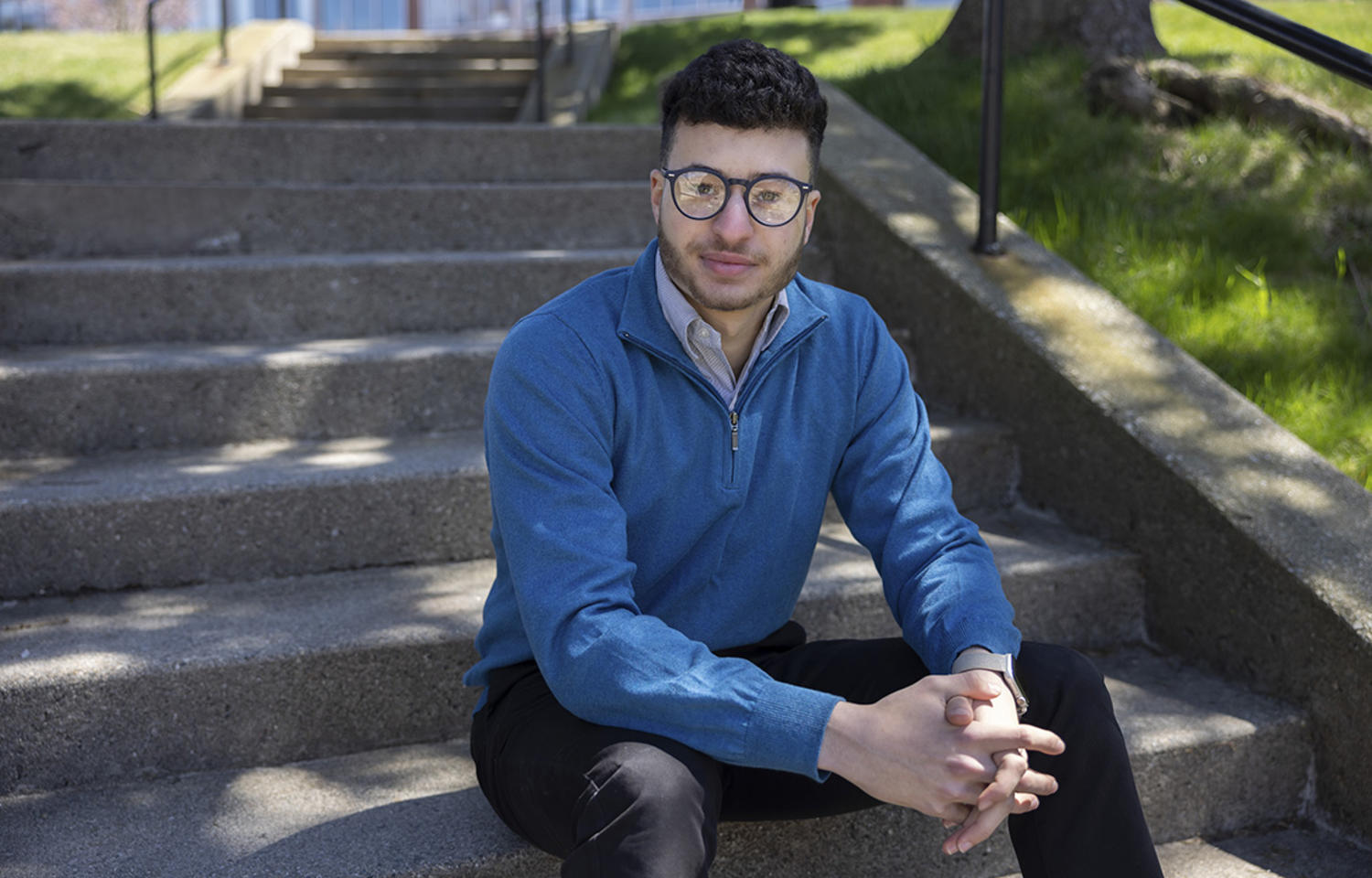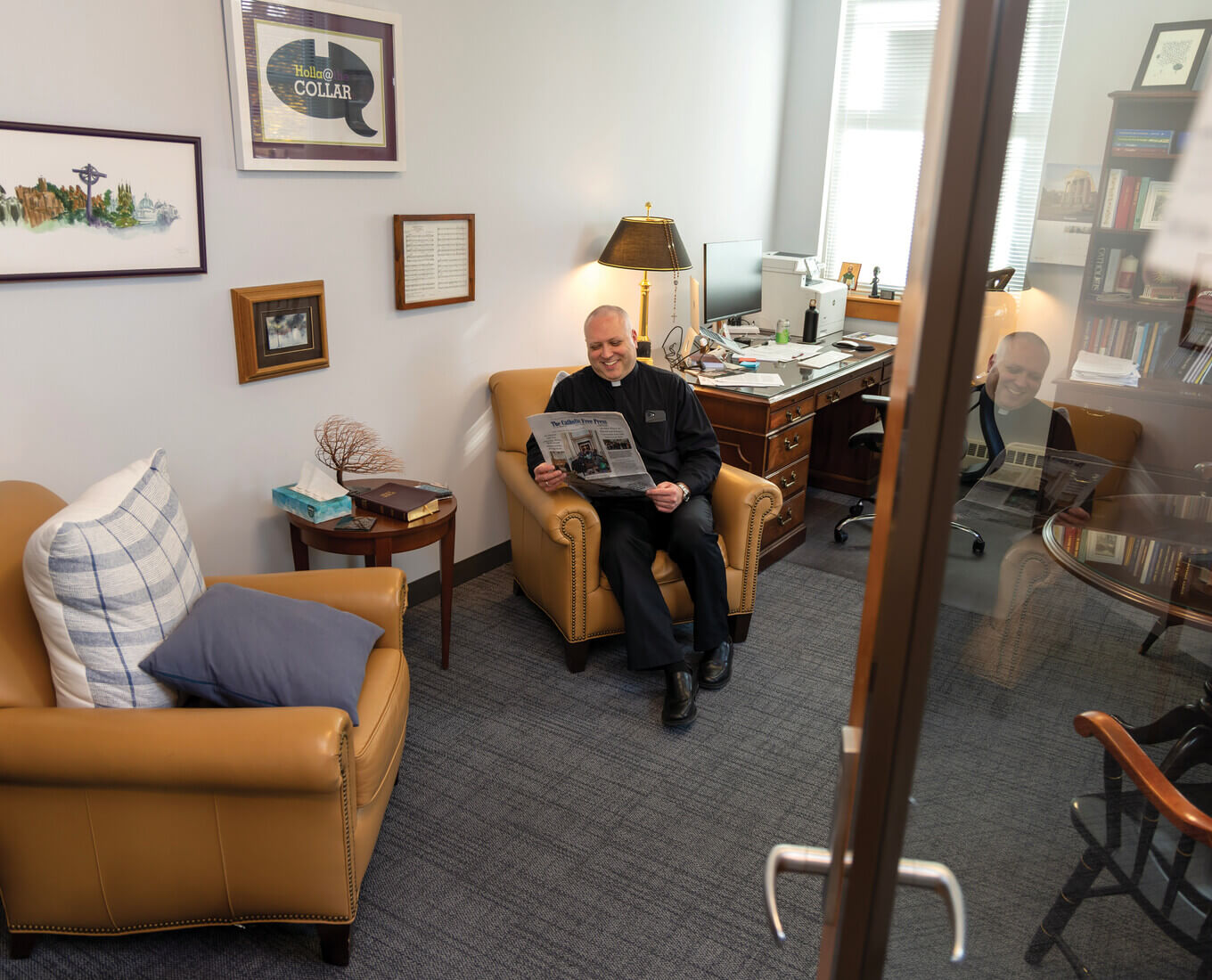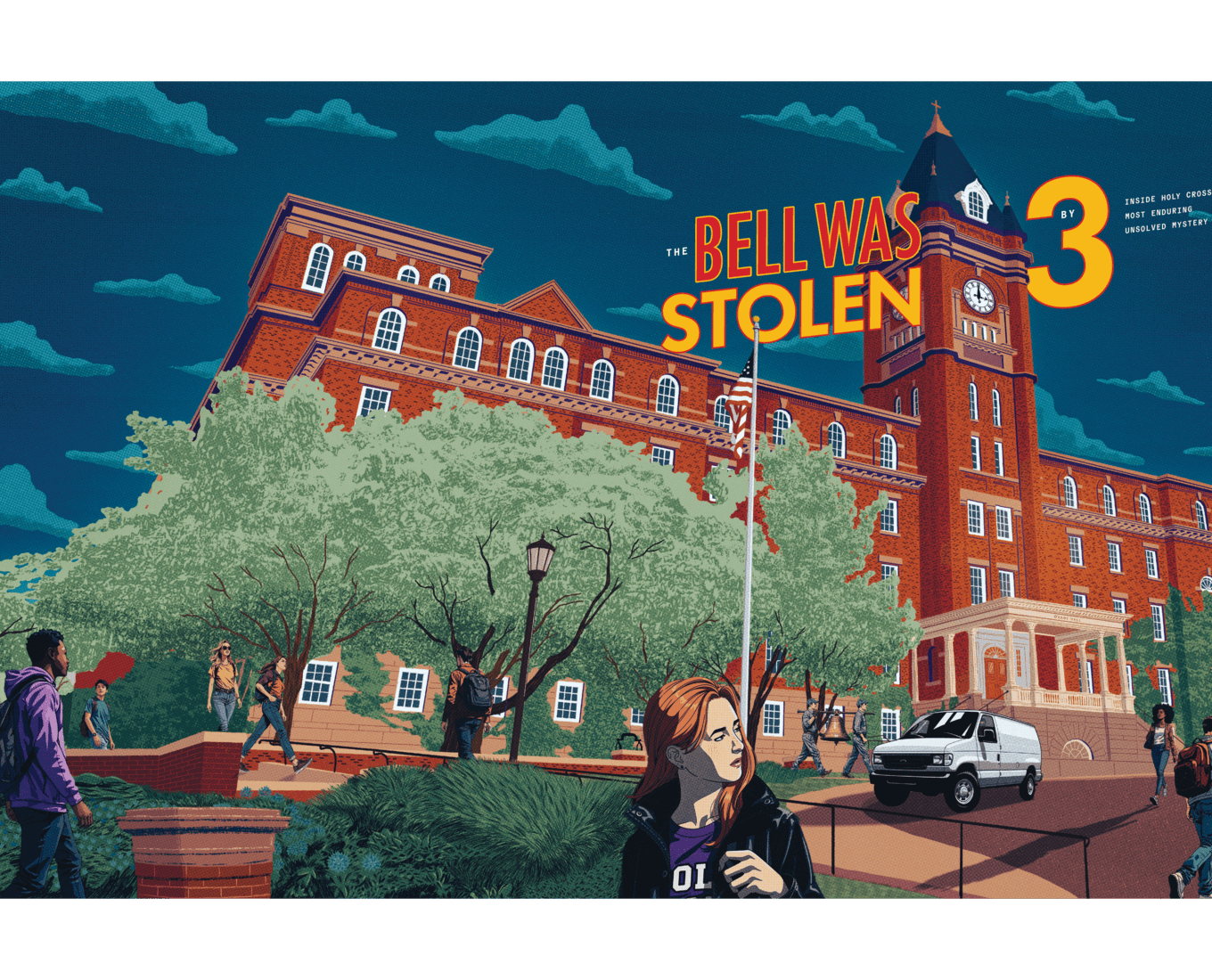College was always a part of Omar Afifi's '24 plan.
As a first-generation college student, the native of Connecticut described his journey to the College of the Holy Cross as one of self-exploration and discovery.
While he never doubted his ability to continue his education after high school, Afifi, in working with Advancement Via Individual Determination Program (AVID), has met many students in Worcester who are uncertain about their future.
As a walking example of the possibilities of higher education, Afifi speaks to students in elementary school up through high school about the opportunities available to students to pursue college.
In working with AVID and HCF1RST Scholars Program at Holy Cross, Afifi, a sophomore chemistry major, was selected as a Newman Civic Fellow. The fellowship recognizes and supports community-committed students who are changemakers and public problem-solvers at Campus Compact member institutions. Fellows are nominated by their president or chancellor on the basis of their potential for public leadership.
We sat down with Omar to ask him where his passion for students in Worcester came from.
When did you realize you wanted to get involved?
The fall of sophomore year is when I got interested. The way it happened was I went to the involvement fair with different SPUD programs and … it was one of the things I saw that got me interested in it. From there, I just got involved with the AVID (Advancement Via Individual Determination) Program.
During you’re time in classrooms, what's surprised you most?
I think it's how little information [students] actually know. And also there isn't that much encouragement, I would say. The encouragement isn't there because there isn't many people that are telling them they can do this or that it's possible and these are the resources that are available that you can use.
What have you learned from the experience?
I think for one, it has improved my communication skills. I've been talking with different age groups from elementary school all the way up to high school. So I can't be presenting the things I'm presenting to high school kids to elementary school students. You don't start to realize that until you're like 'Oh these are 8-year-olds, 9-year-olds, compared to a 16 or 17 year old.' That type of information that I'm presenting makes a huge difference. That was probably the most challenging part in the beginning.
How does your message differ in speaking with high school students compared to elementary school students?
Usually, with high school students, I focus on things and the steps they need to take at that age. It's usually freshmen, so if I'm presenting to freshmen, I usually focus on the SATs. How long it takes to study. The range of the scores. Things like that. The type of things you should be focusing on in high school.
In elementary school, I usually try to bring up the funnier things or more fun things in college. Just to get them excited about the idea of attending college. For elementary schools, I'd focus more on the idea of you can pick your own classes. You get to choose when you eat. Kids are always being told what to do. The idea of them having the freedom and individualism when they come here seems so far-fetched for them. I think they just need to hear it.
I also try to suggest to them different things they should focus on when they are in elementary school up to high school: asking questions, participating in class, doing their homework, sleeping well. As simple as the ideas are, I think they serve a great purpose.
Why is it important to talk to elementary school students about college?
It's never too early to do something like that. I'm not really telling them to do something. All I'm doing to them is opening their eyes to different ideas. I think that serves a great benefit because it's never too early to start thinking about what you like. If you are interested in the sciences, of course, you're not going to start taking hardcore science classes in elementary school, but you can start focusing on your classes and start asking questions to your science teacher. Simple things like that.
What are the reactions you see when you speak to students about college?
It's usually mixed. But in the beginning, you can't really tell what they're expecting. I think they get a lot of the information from the people around them, which are teachers and parents. When I was their age, I wouldn't have believed the things that teachers said. It's just another person older than me and doesn't understand what I'm thinking. So I completely empathize with them and I understand what they're going through because I was once in their position.
As I start talking to them and start giving them information, telling them they can do this too, after breaking the ice in the beginning, I notice they are a lot more open, ask more questions and become more interested.
What's the most rewarding aspect for you?
The 'thank you' I get from every student that I present to. So many say 'Thank you I didn't know about this' or 'Thank you, I didn’t know that you can choose your own classes.' The thank you from them is by far the most rewarding.
What do the “thank yous” mean to you?
It's a great question. My schedule is definitely tough in terms of school work and all that stuff. But I think just getting that positive affirmation or feedback from the students makes it worthwhile to keep doing what I'm doing.
What drew you to attend Holy Cross?
Two things drew me to Holy Cross. One of them was class size. … A big lecture hall is not something for me so that was one of the reasons I chose Holy Cross. The second reason is I think the emphasis on community involvement throughout the four years and also the strength of the chemistry program. But the community involvement. The number of opportunities that are available here on campus.
What attracted you to community involvement?
The city was one of the reasons. The diversity of the city. Worcester has a very diverse population, ethnically, religiously, socioeconomically, so that was one of the reasons, especially because of the community involvement and the emphasis that was put on Holy Cross students in the community.
I think that it's something that makes up a significant part of the college experience. Just being involved in general, I think there's a benefit that comes from it, in addition to the benefit that it hopefully has on other people. I think the benefit that comes from it is what made me get involved.
Named a Newman Civic Fellow, Omar Afifi ‘24 Looks To Inspire Other Students in Worcester Schools

Afifi speaks to students from elementary school to high school about college
Read Time
5 Minutes

